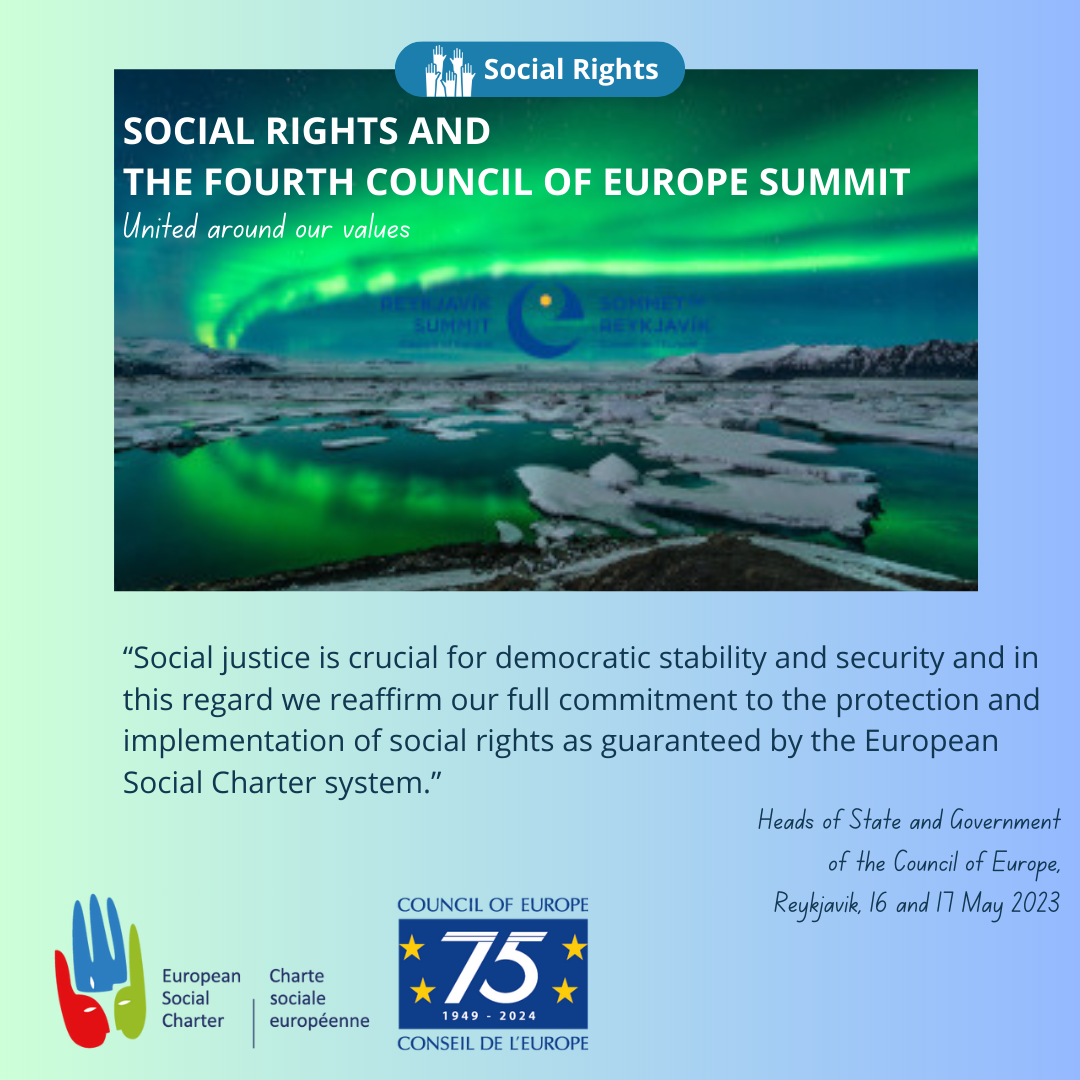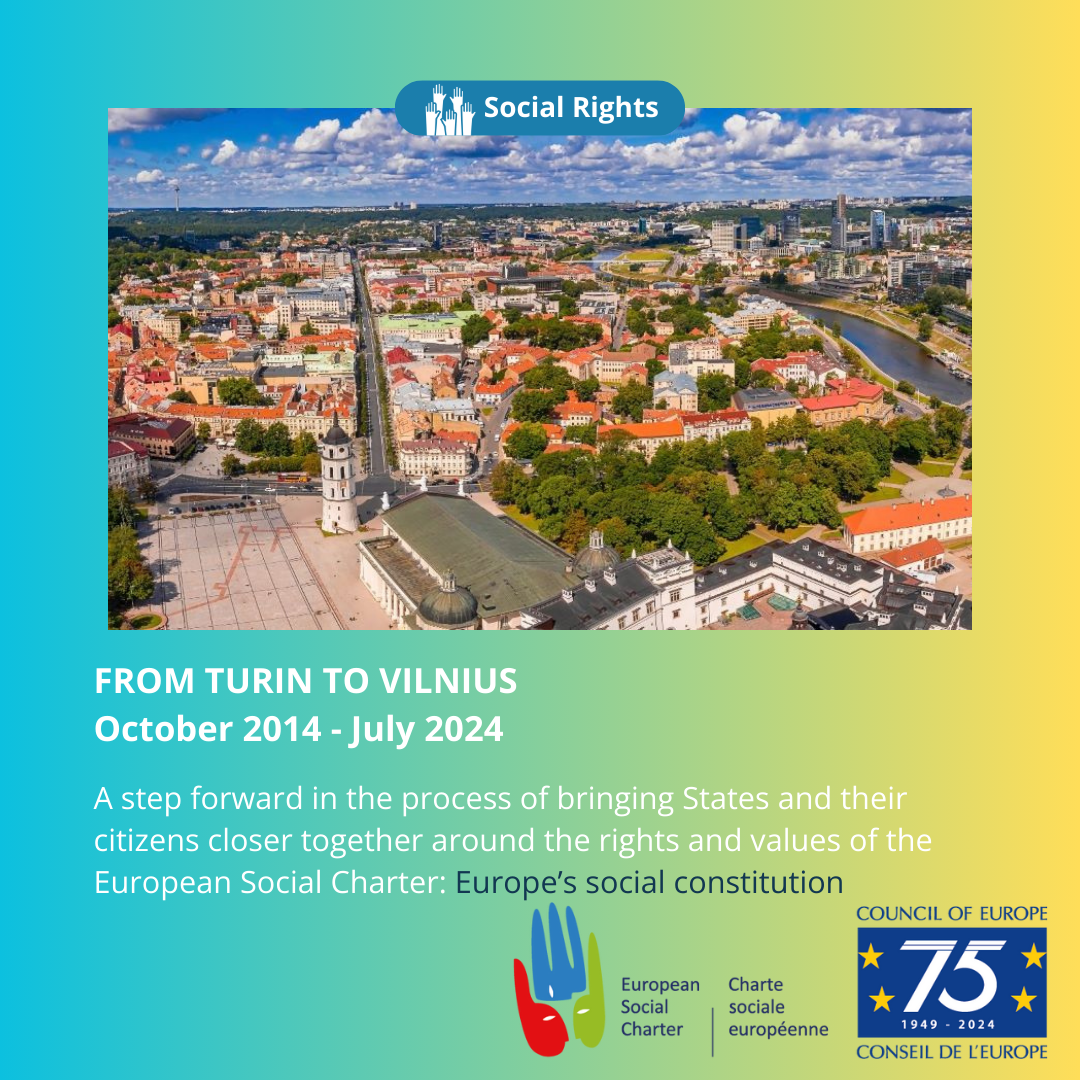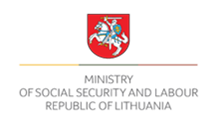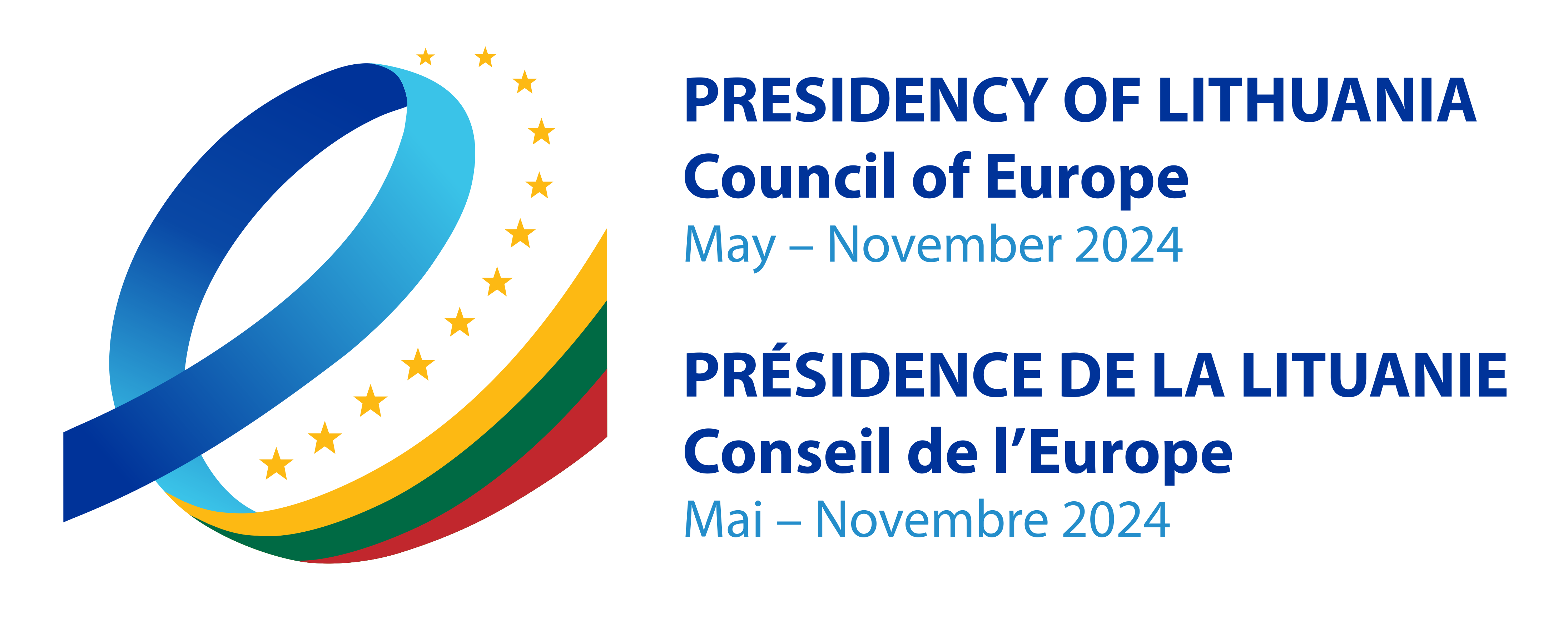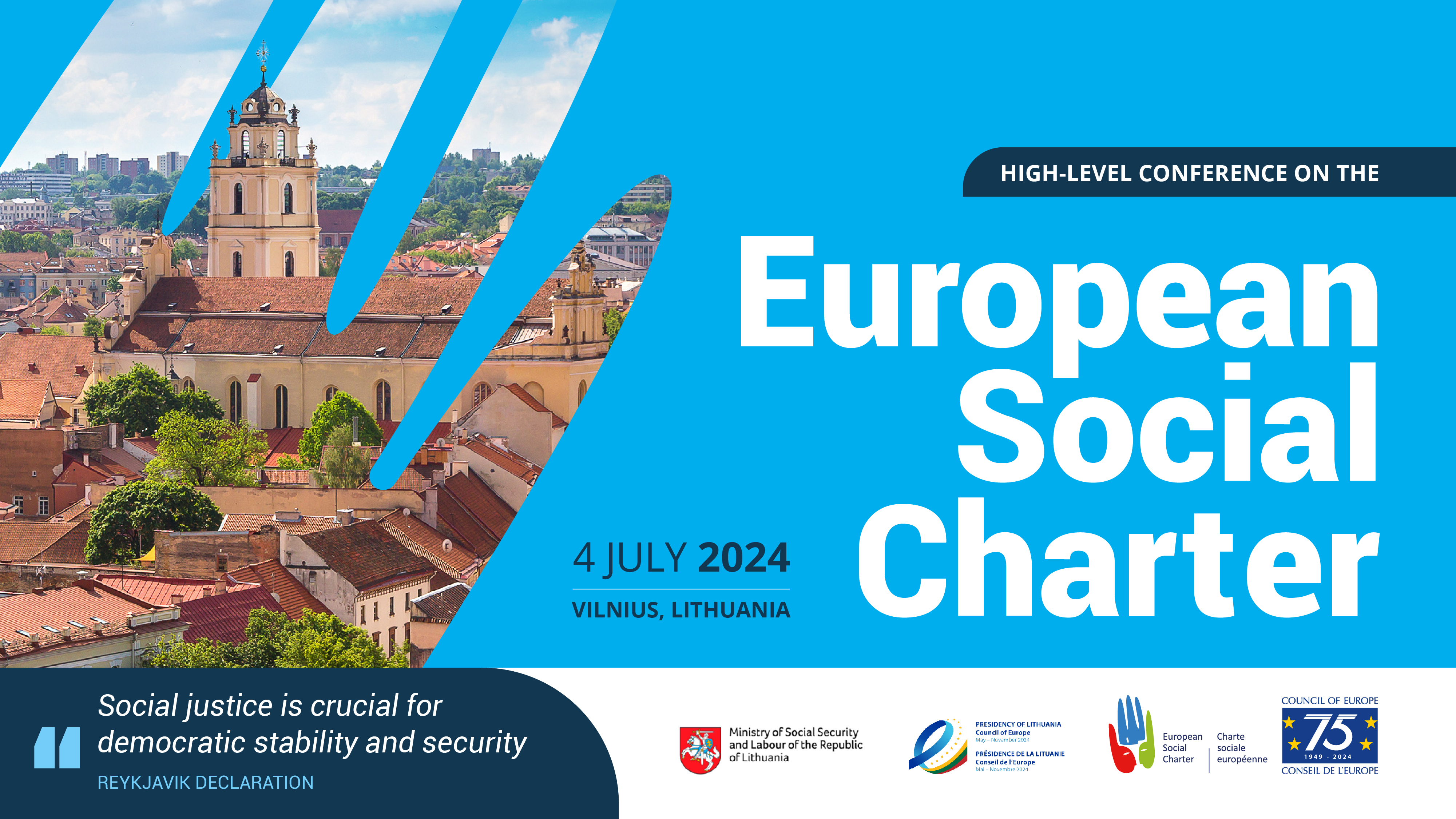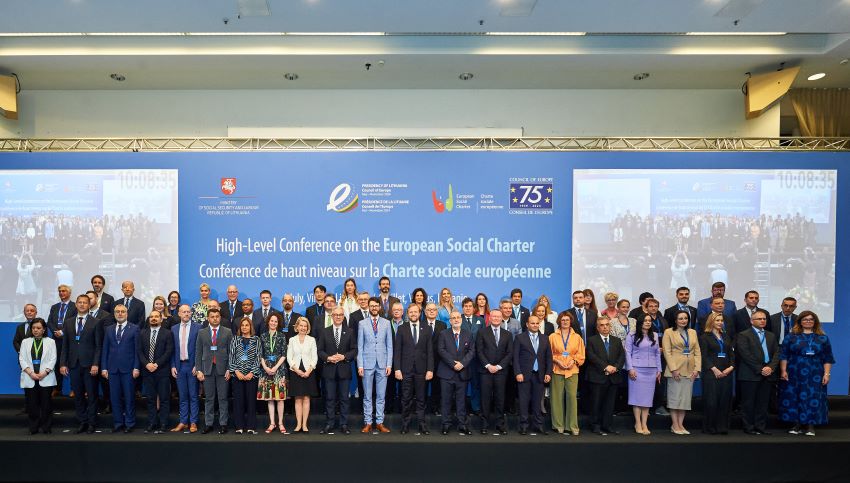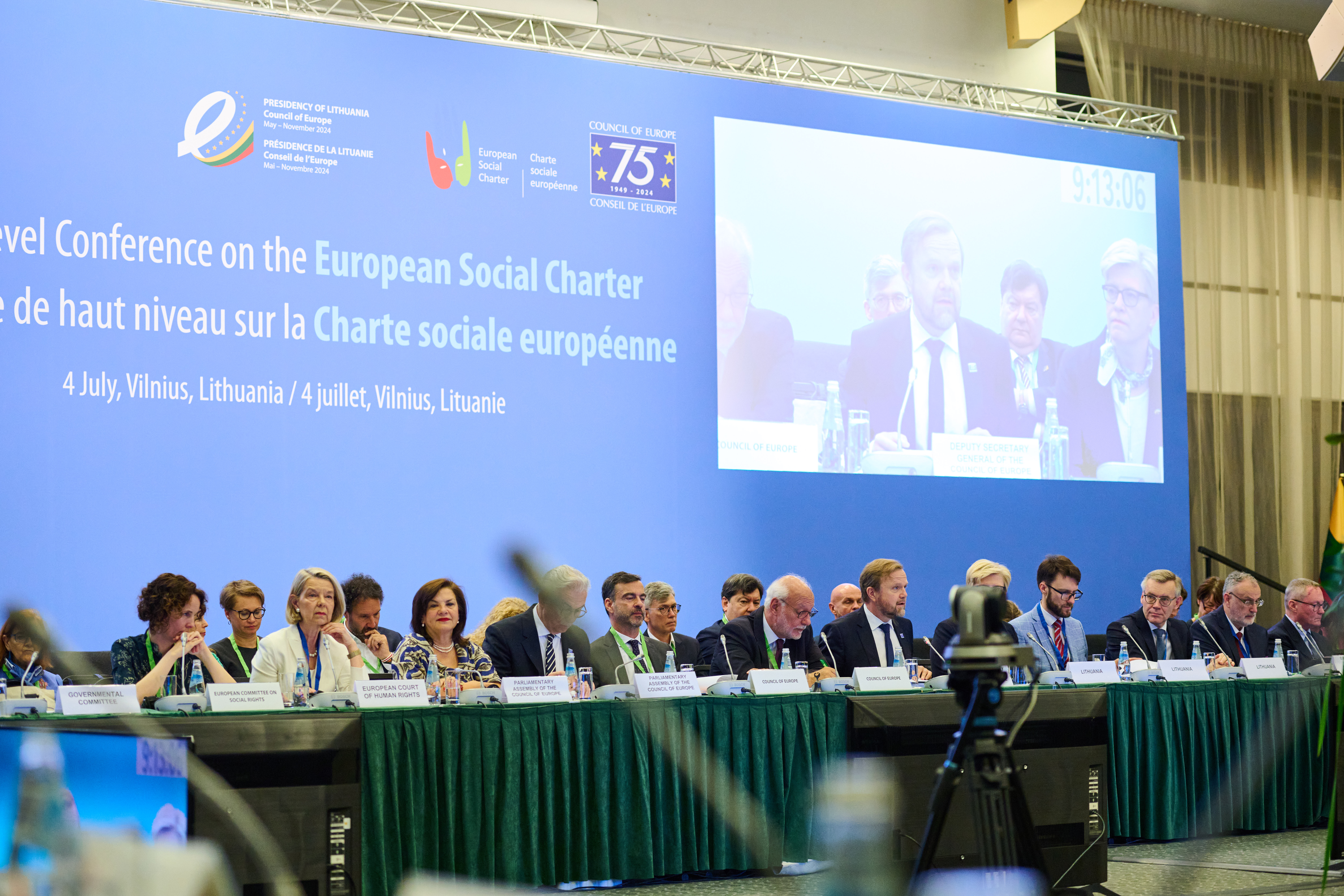High-Level Conference on the European Social Charter
|
|
|
|
Recording of the Conference
Short video of the Conference
At the High-level conference on the European Social Charter in Vilnius, ministers, deputy ministers and high-level representatives from the Council of Europe member states, adopted the Vilnius declaration and reaffirmed their collective duty to promote respect for, and the continuing development of, social rights. These rights are viewed both as human rights and also as vectors of economic growth, social progress and social cohesion, peace, security and stability.
The High-Level Conference on the European Social Charter, as a step to take further commitments under the Charter where possible, was organised as part of the follow-up to the Fourth Summit of the Council of Europe. The Conference was proposed in the Reykjavik Declaration by the Heads of State and Government who stated that “Social justice is crucial for democratic stability and security and in this regard [reaffirmed their] full commitment to the protection and implementation of social rights as guaranteed by the European Social Charter system.”
The Conference was organised under the auspices of the Presidency of Lithuania to the Committee of Ministers and was hosted in Vilnius by the Secretary General of the Council of Europe and the Minister of Social Security and Labour of Lithuania.
The High-Level Conference brought together Ministers and senior officials competent in the field of social rights and social policy, representatives of Council of Europe entities, including the Parliamentary Assembly, the Congress of Local and Regional Authorities, the Commissioner for Human Rights, the European Court of Human Rights. Other participants included representatives from the European Commission, the Fundamental Rights Agency, the International Labour Organisateion, the United Nations, etc., as well as representatives from civil society, social partners, academia, and National Human Rights Institutions and Equality Bodies—or their pan-European networks. The members of the Governmental Committee and the European Committee of Social Rights also participated in the Conference.

Themes of the Conference
To respond to the Reykjavik Declaration, the High-Level Conference will allow Ministers to discuss contemporary social rights challenges. They will also be able to reaffirm the crucial importance of the Charter and its monitoring procedures, including the collective complaints procedure, as vectors of good governance. They will also have the opportunity to express support for the realisation of social rights in view of their relevance in preventing democratic backsliding.
It will be possible to sign or deposit instruments taking further commitments under the Charter during a dedicated treaty event.
The Committee of Ministers’ recent decisions on reform deferred discussions on certain issues, for example possible treaty developments (new rights, such as the right to a safe and healthy environment, and amending the personal scope) and accession by the European Union to the Charter as well as other issues which could be revisited in the future. In Vilnius, Ministers will have the opportunity to continue the discussion on these issues with a view to further strengthening the Charter system and promoting the Charter implementation.
Finally, the participating Ministers will be invited to adopt a forward-looking political declaration reflecting their commitment to social rights and to the European Social Charter, proposing any further action they consider necessary or desirable.

Preparatory Process
This call for contributions was addressed to states, ministries and other government agencies with social rights responsibilities, intergovernmental organisations, organisations of workers and employers, civil society organisations, academia and individuals with expertise and interest in social rights, human rights, social justice and related fields.
The contributions received will be considered when preparing the Programme of the High-Level Conference on the European Social Charter (4 July 2024, in Vilnius, Lithuania) and will also serve as basis for the the messages of the Political Declaration, the expected main outcome of the Conference. They can therefore be relevant in shaping the Council of Europe’s future agenda in respect of social rights and social justice.
What is the european Social Charter
The European Social Charter, known as the Social Constitution of Europe, is a Council of Europe treaty that guarantees fundamental social and economic rights. It is complementary to the European Convention on Human Rights, which protects civil and political rights. The Charter is based on the same principles of universality, indivisibility and interdependence as other human rights.
The Charter guarantees a broad range of everyday human rights related to employment, safety at work, health, social protection and welfare, housing, education, with a specific emphasis on the protection of vulnerable groups such as older persons, children, persons with disabilities and migrants. The enjoyment of these rights must be guaranteed without discrimination.
The respect of the Charter by States Parties is examined by the European Committee of Social Rights through two monitoring mechanisms: the collective complaints procedure and the reporting procedure.
Social partners and non-governmental organisations play an important role in both collective complaints and reporting.
The decisions and conclusions of the European Committee of Social Rights should guide States action. They provide an authentic interpretation of the applicable international law and a basis for positive developments in social rights through legislative and policy measures at national level.
Historical background of the European Social Charter
When it came to giving binding legal force to the rights in the Universal Declaration of Human Rights, adopted by the United Nations on 10 December 1948, the Council of Europe adopted two separate treaties, at an interval of about 10 years.
It focused first on civil and political rights, which were incorporated into the European Convention on Human Rights.
Even if a reference to the social dimension appears both in the preamble and in Article 1 of the Statute of the Council of Europe, it took over 10 years after the adoption of the Convention for the European Social Charter finally to be adopted.
The Turin process was launched by the Secretary General of the Council of Europe at the High-level Conference on the European Social Charter. This Conference was organised in Turin on 17 and 18 October 2014 by the Council of Europe, the Italian Presidency of the Council of the European Union and the City of Turin. It was launched soon after the Secretary General’s decision to put the European Social Charter at the top of his priorities, and this, with a view to increasing the relevance and impact of the work of the Council of Europe. During 2015, the achievement of the objectives of the Turin process was discussed at the Conference on the future of the protection of social Rights in Europe, organised in Brussels on 12-13 February by the Belgian Chairmanship of the Council of Europe. Two other high-level meetings marked the Turin process in 2016: the Interparliamentary Conference on the European Social Charter and the Turin Forum on Social Rights in Europe. These events, held in Turin on 17 and 18 March, were organised by the Council of Europe, in co-operation with the Italian Chamber of Deputies and the City of Turin. At the Forum, the European Commission presented its draft European Pillar on Social Rights.
Social Europe dedicated page on the European Social Charter.
